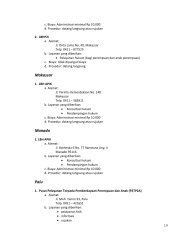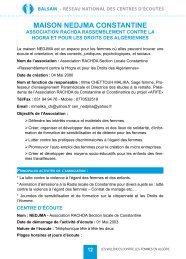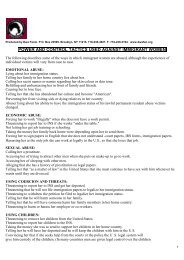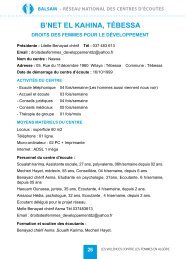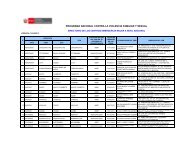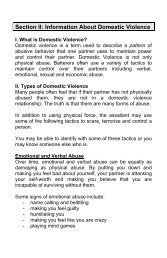Working with Battered Women: a Handbook for ... - Hot Peach Pages
Working with Battered Women: a Handbook for ... - Hot Peach Pages
Working with Battered Women: a Handbook for ... - Hot Peach Pages
You also want an ePaper? Increase the reach of your titles
YUMPU automatically turns print PDFs into web optimized ePapers that Google loves.
Difficult SituationsThere are a number of situations in which it may be difficult to ask about domesticviolence.• Intoxicated patients: Minimize talk. Provide support and allow thepatient time to recover sobriety be<strong>for</strong>e attempting to discuss the issue of domesticviolence. Then provide assessment and referral as usual.• Hostile/abusive patients: Acknowledge the patient's anger. Offer support andservices, but do not insist or pressure the patient.• Patients who cannot communicate due to language barriers: Do not userelatives, children or the abuser as interpreters. If an interpreter is obtained,determine that the patient is not acquainted <strong>with</strong> the translator. If possible obtaina translator from an agency dealing <strong>with</strong> the ethnocultural community.• Patients who are seriously ill or hallucinating: Provide support and allow thepatient's condition to stabilize be<strong>for</strong>e exploring the issue of domestic violence.• Patients who deny they have been battered: Because of the difficulties awoman may have in leaving an abusive relationship, she may be hesitant to selfidentifyand may even deny abuse has occurred. Explain that she can come back<strong>for</strong> further assistance if she ever finds herself in such a situation. Give her thereferral and resource in<strong>for</strong>mation, telling her you always give it out to everyone.21



